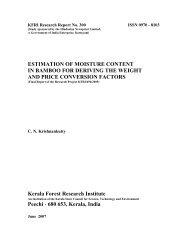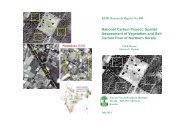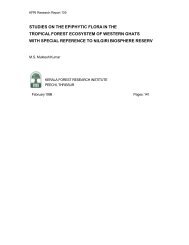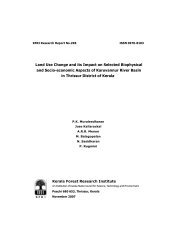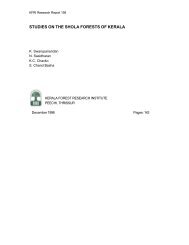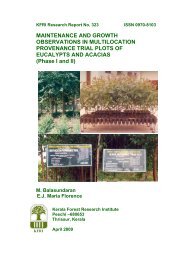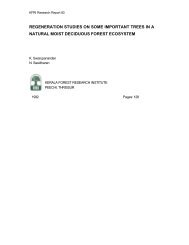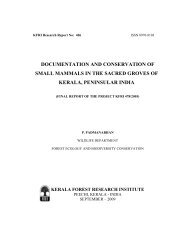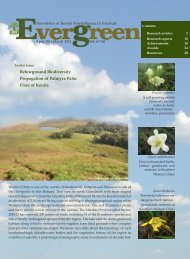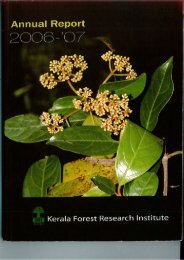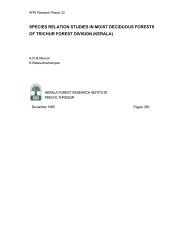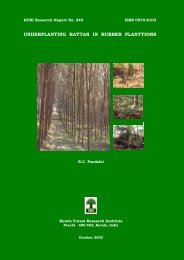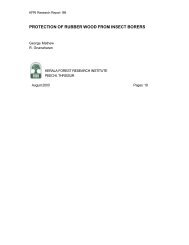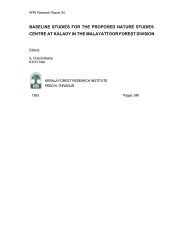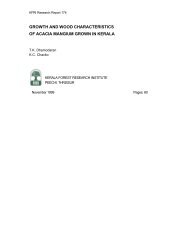2008-'09 - Kerala Forest Research Institute
2008-'09 - Kerala Forest Research Institute
2008-'09 - Kerala Forest Research Institute
Create successful ePaper yourself
Turn your PDF publications into a flip-book with our unique Google optimized e-Paper software.
Annual Report <strong>2008</strong>-09<br />
Aegle marmelos fruit<br />
Premna serratifolia<br />
retention time (3.3 min) were also detected in chloroform as well as acetone extracts of both<br />
species of Scutellaria. The concentration of baicalein in the extracts was also calculated using<br />
the standard. In the species collected from Nelliyampathy, the concentration of baicalein was<br />
0.229 and 0.210 mg/g dry weight (root) in acetone and chloroform extracts, respectively whereas<br />
the concentration was 0.134 and 0.150 mg/g respectively in species collected from Wayanad.<br />
For the HPLC analysis, the chloroform as well as acetone extracts of Aegle marmelos and<br />
Murraya koenigii were analysed using standard psoralen (Sigma). The retention time of<br />
standard psoralen observed with the solvent system, acetonitril: water was 4.5 min. Peaks in<br />
the same retention time were also detected in the extracts of both Murraya koenigi and<br />
Aegle marmelos. Among the plants screened, comparatively high amount of psoralen was<br />
detected in Murraya koenigii while only trace amounts were observed in Aegle marmelos.<br />
Developing appropriate technology for community level production of charcoal and<br />
activated carbon from coconut stem wood and shell for industrial use<br />
The Fluidized Bed Reactor (FBR) technology was found appropriate for the community<br />
level production of activated carbon from charcoal. Designs of a pilot scale continuous<br />
vertical carbonizing plant and a pilot scale FBR plant for production of activated carbon<br />
were developed. Both the plants were installed at the project site of SUBICSHA-a communitybased<br />
organization at Perambra, Kozhikode, <strong>Kerala</strong>. Trial runs were conducted in both<br />
the plants; the yield and quality of product were assessed. The newly developed plants were<br />
found capable to produce better yield compared to traditional methods of production.<br />
The production parameters for desired quality products were optimized.<br />
As far as conversion of waste coconut stem wood was concerned, it was found that<br />
the plant could produce stem wood charcoal with moderate yield and quality. The<br />
56<br />
<strong>Kerala</strong> <strong>Forest</strong> <strong>Research</strong> <strong>Institute</strong>



